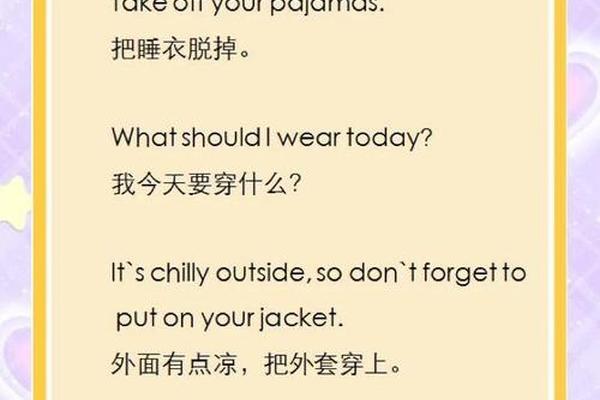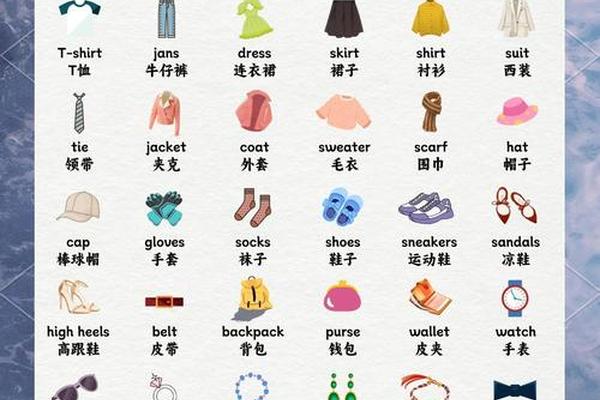一、表示“穿衣服”的动作
1. Put on
强调“穿戴”的 动作,后接衣物名称。
例句:He puts on his shoes and leaves the house.(他穿上鞋离开家)
注意:Put on clothes 通常指从裸露状态开始穿衣,若日常披外套等场景,需具体说明衣物,如 Put on a coat,否则可能引起误解。
2. Dress
作及物动词时,宾语是 人(如 dress the child);作不及物动词时,需搭配介词或短语(如 get dressed)。
例句:She dresses her son in a white T-shirt.(她给儿子穿白色T恤)
固定搭配:
Get dressed(穿好衣服):I need to get dressed for the party.
Dress up(盛装打扮):She dressed up for the interview.
二、表示“穿着服装”的状态

1. Wear
强调“穿戴”的 状态,可搭配衣物、饰品等,如 wear glasses(戴眼镜)、wear a smile(面带笑容)。
例句:He is wearing a brown uniform.(他穿着棕色制服)
2. Be dressed in
描述整体着装风格或颜色,后接衣物或颜色。
例句:She was dressed in black.(她穿着一身黑)
3. Have on
与 wear 同义,但不可用于进行时态。
例句:He has a blue coat on.(他穿着蓝外套)
4. In + 颜色/衣物
作定语或表语,表示某人穿着的颜色或衣物。
例句:The woman in red is my sister.(穿红衣服的女人是我姐姐)
三、其他相关表达
Try on(试穿):Can I try on this dress?(我能试穿这条裙子吗)
Zip/Button up(拉上拉链/扣扣子):Button up your shirt.(扣好衬衫)
Throw on/Slip into(匆忙穿衣):She threw on a coat and ran out.(她套上外套冲出门)
常见误区

Put on clothes 仅适用于从裸露状态穿衣,日常场景需具体说明衣物。
Dress 后不能直接接衣物,需用 dress in 或 be dressed in。
Wear 可搭配多种穿戴物(如首饰、表情),而 dress 仅用于衣物。
通过以上表达,可根据动作与状态选择合适词汇,避免中式英语错误。



